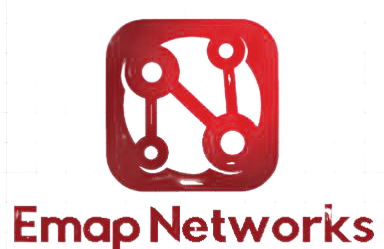In modern network infrastructure, businesses are increasingly dependent on high-speed data transmission. Thanks, to their alluring qualities, such as easy installation and affordability, pre-terminated fiber optic cables have become popular.
However, a pressing query lingers – should these cables undergo additional assessment? This post will get into why the pre terminated cable testing is important and how it benefits your network performance. For more info, visit https://www.bonelinks.com/pre-terminated-fiber-optic-cable/.
Pre-Terminated Fiber Optic Cables- The Overview
A pre-terminated fiber optic cable is a fiber cable assembled in the factory and sometimes even tested instead of fastening the connectors at the currently used location on one or both ends. It is extremely time- and effort-saving, as there is no need for a technician to splice the cords and then place the terminations. These cables are offered at different lengths, with diverse fibers and connection types, thus meeting all the customers’ network needs.
Do Pre-Terminated Fiber Optic Cables Require Further Testing?
Indeed, while pre-terminated fiber optic cables are rigorously evaluated at the factory, follow-up assessments after installation are also vital. Let us explore why supplemental confirmation is so important.
The Importance of Testing
In order to avoid unexpected downtime, create substantial savings, and maintain a high-quality network, certain tests need to be conducted. Such decisions are reached to verify the correct connectivity of optical fibers, identify problems that may have occurred during shipping or due to other external impacts, ensure compliance with appropriate standards like TIA/EIA-568 and ISO/IEC 11801, and document vendors on the quality of finished products.
Different Types of Tests for Pre-Terminated Fiber Optic Cables
After implementing pre-terminated fiber optic cables, it is investing in their additional testing. Some tests are as follows:
- Insertion Loss Testing: It measures how much signal is lost as the light passes through the cable and connectors. It is a standard cable test.
- Return Loss Testing: This test calculates how much of the outgoing light is reflected toward the source. The high-level return loss is an indication that the cable is not fulfilling the requirements due to bad-quality or connectors or due to poor termination.
- Fiber End-Face Inspection: This test inspects the end-face of the connectors. Contamination or imperfection of the face includes scratches and defects that cause loss of signal. For this reason, the network system may fail to function perfectly.
- OTDR (Optical Time Domain Reflectometer) Testing: The test verifies the test data of the fiber optic cable and records the details of the fiber system and fault location and the splice and bend location.
Benefits You Get After Testing Pre-Terminated Fiber Optic Cables
Investing in testing of your pre-terminated fiber optic cables will bring you certain benefits. First of all, your network will be more reliable due to the fact that by testing them first you reduce potential risks of poor workability or downtime.
Such an approach will result in increased efficiency and fewer losses due to downtime and failed performance of the network. You will also save money because if you identify issues with pre-terminated cables at the stage of testing before they are installed, you will not have to look for the reason for your network underperformance after a while.
If this was not done, you would spend a lot trying to figure out the core of the problem and then fix it, taking even more funds. Finally, if you are sure your pre-terminated cables are being tested and meeting all the expectations rolled up, a private network company would bring you more peace and confidence in your network.
Conclusion
Pre-terminated fiber optic cables, while factory-tested, require further testing to guarantee peak performance and reliability. Verifying connectivity, spotting potential issues, ensuring compliance, and documenting performance are key to a strong, efficient network. Choosing a reputable supplier for thoroughly tested, high-quality cables is crucial. This ensures your network is built on a solid foundation and equipped to handle your business’s expanding data needs.





